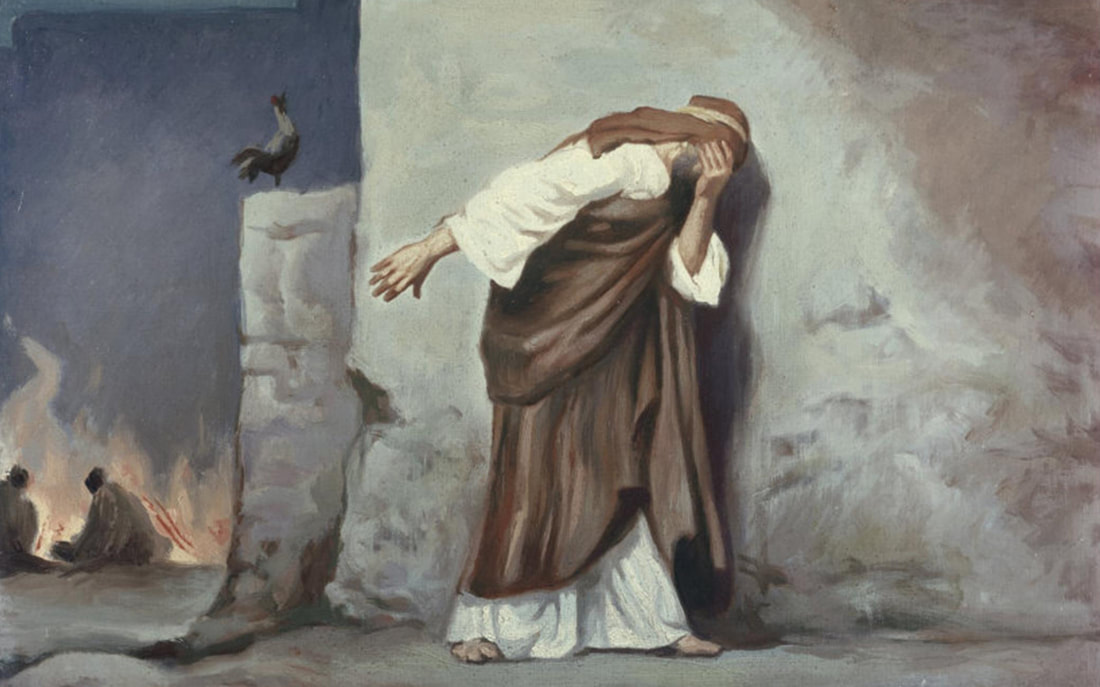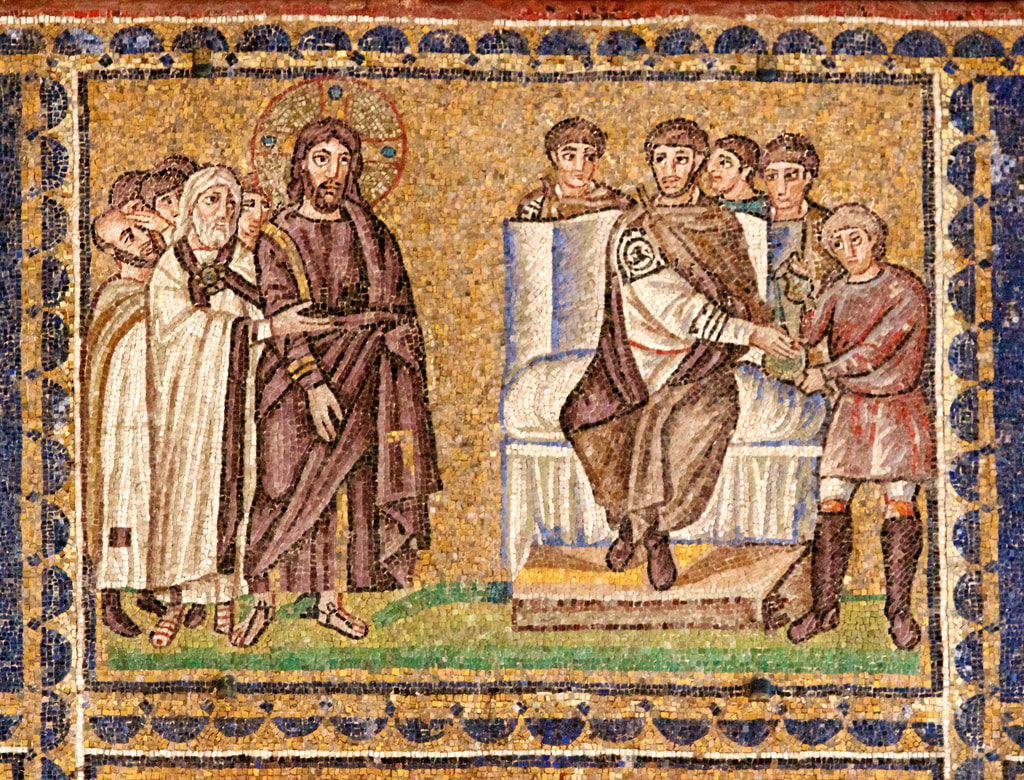There are many directions I'd like to go with Peter's story. I think it's awfully sad that the disciple who trusted Jesus enough to recognize him as the Messiah and to trust him to walk on water gets such a bad reputation. But what I really want to focus on is how I think the whole denial story paints Peter as something he absolutely wasn't - a coward. I want to make a case for Peter's bravery, but even more than that, I want to make the case that the underlying issue with Peter's betrayal was much deeper than momentary fear. While there may have been some fear involved in Peter's denial of Christ, I think it's fairly clear that fear for his own wellbeing was not Peter's primary problem. So why do most of us think Peter was filled with fear? I think the fear narrative is easy for us to latch on to for a number of reasons, but most of all because if we say Peter's problem was fear, we in the West can subsequently disassociate ourselves from being in Peter's shoes. How often have we felt genuine fear for our lives because of our Christian beliefs? Almost every one of us would have to say "never." And so we never have to identify with a traitorous Peter who feared for his life. But as I will argue, Peter's reason for denying Christ should make us much more introspective about the ways we are constantly tempted to deny Christ in like manner. So let me make my case now for why I don't think Peter was a coward who feared for his life.
|
We Christians think we have the Apostle Peter pegged. Of all Jesus's disciples we seem to have the most insight into Peter's thoughts and actions. He was clearly a very eccentric individual, prone to speaking before thinking and prone to ideas of grandeur. He is the disciple who first proclaimed Jesus as the Messiah and Son of God. He is the disciple who walked on water. He is one of two disciples who raced to Christ's tomb on Easter morning. Peter was always caught up in the action. And while he so apparently loved Jesus, Peter is most well known for his betrayal of our savior during Jesus's greatest hour of need. That act of betrayal seems to fit Peter's character pretty well. He is always so close to good, but ends up falling short. Peter's betrayal was just the last example in a string of near successes, but ultimate failures. Right after being the first disciple to declare Jesus as the Messiah, Jesus told Peter to "get behind me Satan," as Peter tempted Jesus to avoid the cross. Right after being the only disciple to walk on water, he began to sink because he focused on his circumstances rather than Jesus. And right after Peter declared that he would stand by Christ, he denied him three times. Peter's story is largely a story of "almosts." He almost got it right, but always messed things up somehow.
There are many directions I'd like to go with Peter's story. I think it's awfully sad that the disciple who trusted Jesus enough to recognize him as the Messiah and to trust him to walk on water gets such a bad reputation. But what I really want to focus on is how I think the whole denial story paints Peter as something he absolutely wasn't - a coward. I want to make a case for Peter's bravery, but even more than that, I want to make the case that the underlying issue with Peter's betrayal was much deeper than momentary fear. While there may have been some fear involved in Peter's denial of Christ, I think it's fairly clear that fear for his own wellbeing was not Peter's primary problem. So why do most of us think Peter was filled with fear? I think the fear narrative is easy for us to latch on to for a number of reasons, but most of all because if we say Peter's problem was fear, we in the West can subsequently disassociate ourselves from being in Peter's shoes. How often have we felt genuine fear for our lives because of our Christian beliefs? Almost every one of us would have to say "never." And so we never have to identify with a traitorous Peter who feared for his life. But as I will argue, Peter's reason for denying Christ should make us much more introspective about the ways we are constantly tempted to deny Christ in like manner. So let me make my case now for why I don't think Peter was a coward who feared for his life.
6 Comments
There are quite a few characters you can criticize when it comes to the story of Jesus's crucifixion. The disciples were cowards and ran, with Peter even openly denying Christ numerous times. The religious leaders hounded Jesus and held a kangaroo court to convict him. The fickle crowds who were praising Jesus only a week before, now yelled out for his blood. In Luke's account, we even see Satan come into play as he enters Judas and has his hands in the mix. But for as cowardly, evil, or lost as some of these agents were, there is one character we often overlook. Pilate.
I think Pilate gets passed by so often because we can empathize with his position. Whereas the disciples were committed to Jesus and should have been loyal, and whereas the religious leaders were malicious and pursued Christ's blood, Pilate was caught in the middle of something he didn't want to be a part of. He had no loyalty to Jesus, but neither did he hold any malice. He was as impartial a judge as we could hope for in overseeing Jesus's trial. In fact, as we progress through the story, we see Pilate recognize Christ's innocence and attempt to free him using the various means he had at his disposal. To most, it seems like Pilate is a fairly decent guy who is trying to do the right thing, but ends up having to make a difficult decision in order to do his job by maintaining order. |
*The views and ideas on this site are in no way affiliated with any organization, business, or individuals we are a part of or work with. They're also not theological certainties. They're simply thinking out loud, on issues and difficulties as I process things.
Categories
All
|





 RSS Feed
RSS Feed